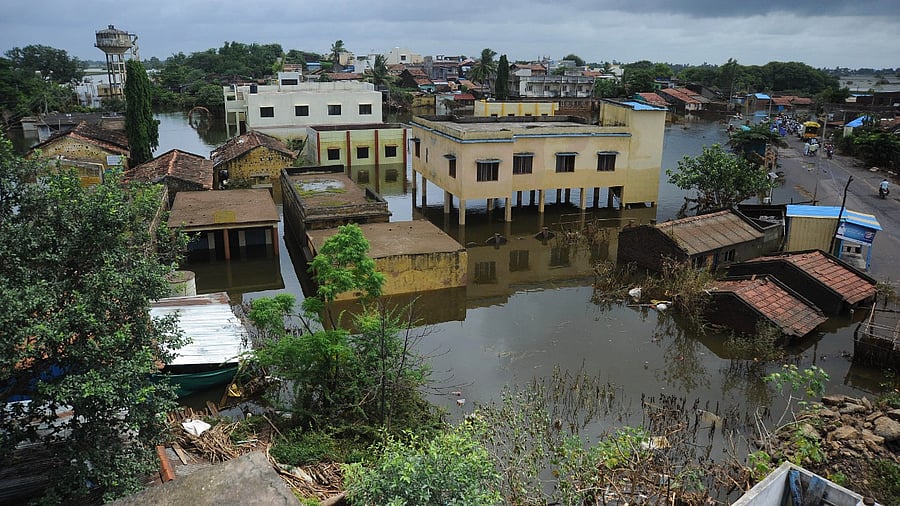
For thousands of people who lost their houses during the 2019 flood disaster in the Krishna basin, the Karnataka government's rehabilitation package has remained a mirage while the pandemic has brought additional distress by robbing them off their livelihood, as per a ground survey by ActionAid.
The NGO visited 20 villages in Bagalkot's Mudhol Taluk and seven villages spread across three taluks of Belagavi to assess the status of the persons who were affected by the floods two years ago.
ActionAid programme manager Raghavendra Pachapure said 'Life Experiences of Survivors of the Deluge' a report on the condition of the disaster victims, was released on August 12. With case studies from different villages, the report will also bring to light the poor quality of rehabilitation work.
Neelaiah, a social activist and field coordinator, said the residents in flood-hit villages have never been able to get a sense of closure. "Except for the Rs 10,000 distributed as emergency relief, they have not received the aid for construction of the houses that either collapsed or partially damaged. The government had fixed Rs 5 lakh, Rs 3 lakh and Rs 50,000 as relief package based on the extent of damage. At least 30 per cent of the more than 8,000 families have not received a penny," he said.
Also Read | 83 taluks in Karnataka declared 'flood-hit'
He said the story of Ashok Kamble, a flood victim from Darur village in Belagavi's Athani taluk, was the story of the system failing society. "The chief minister and deputy chief minister visited the village and gave a cheque for Rs 5 lakh to Kamble. Immediately after the event, panchayat officials took away the cheque promising to transfer the relief amount to his bank account. He has not received anything till now," he said.
ActionAid Regional Manager Nandini K said the people living in vulnerable areas near river banks are the traditionally marginalised communities. "Most of the villagers are those working in sugarcane fields or sugar factories. These are people whose services are taken by society but they are denied the basic amenities and forced to find a place away from the main villages," she said.
She said the report provides case studies to show how discriminatation continues even as the rules to end such a system proliferate on paper. "The village level disaster management system has not become a reality in most of the villages though the government notified the same over an year ago. The report seeks permanent solution for the victims, including permanent rehabilitation," she added.
